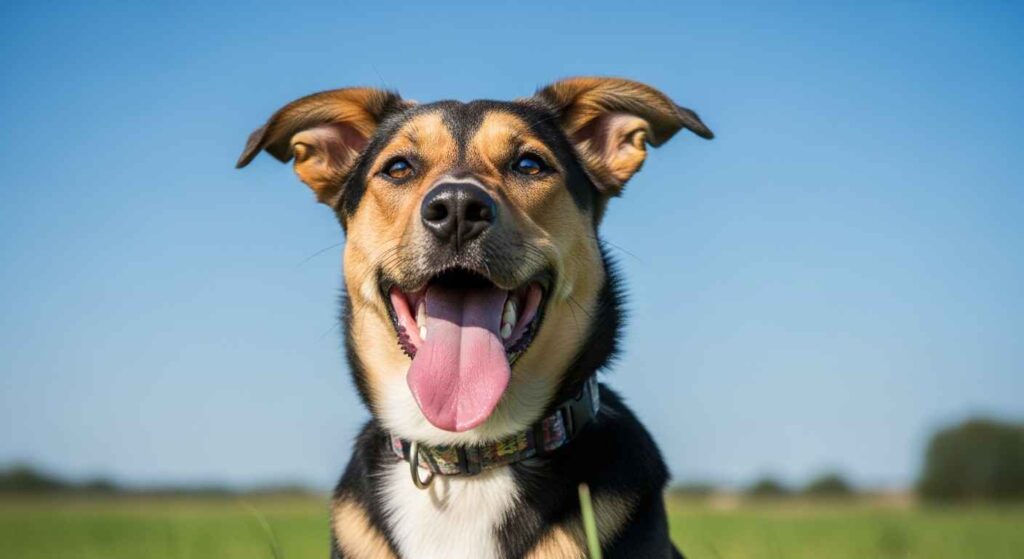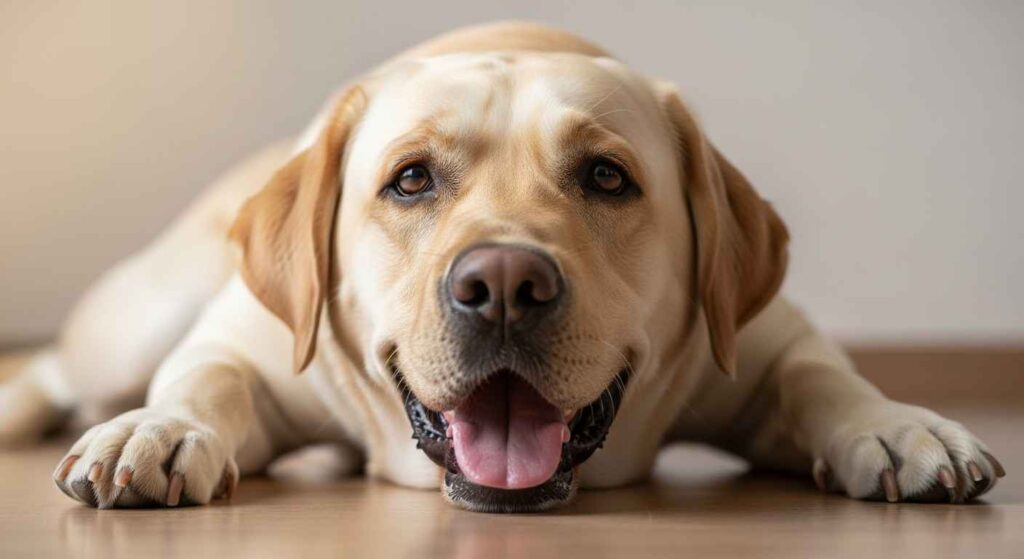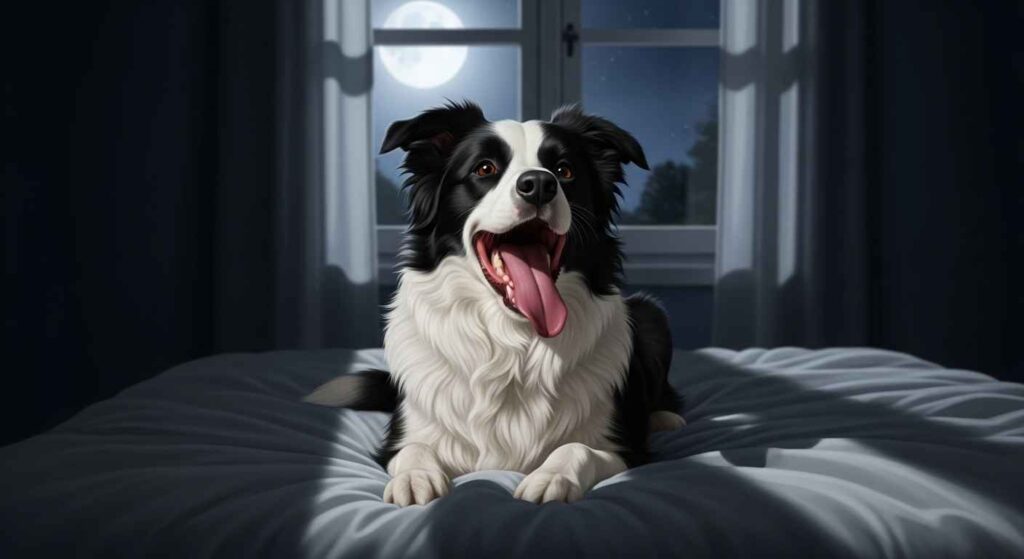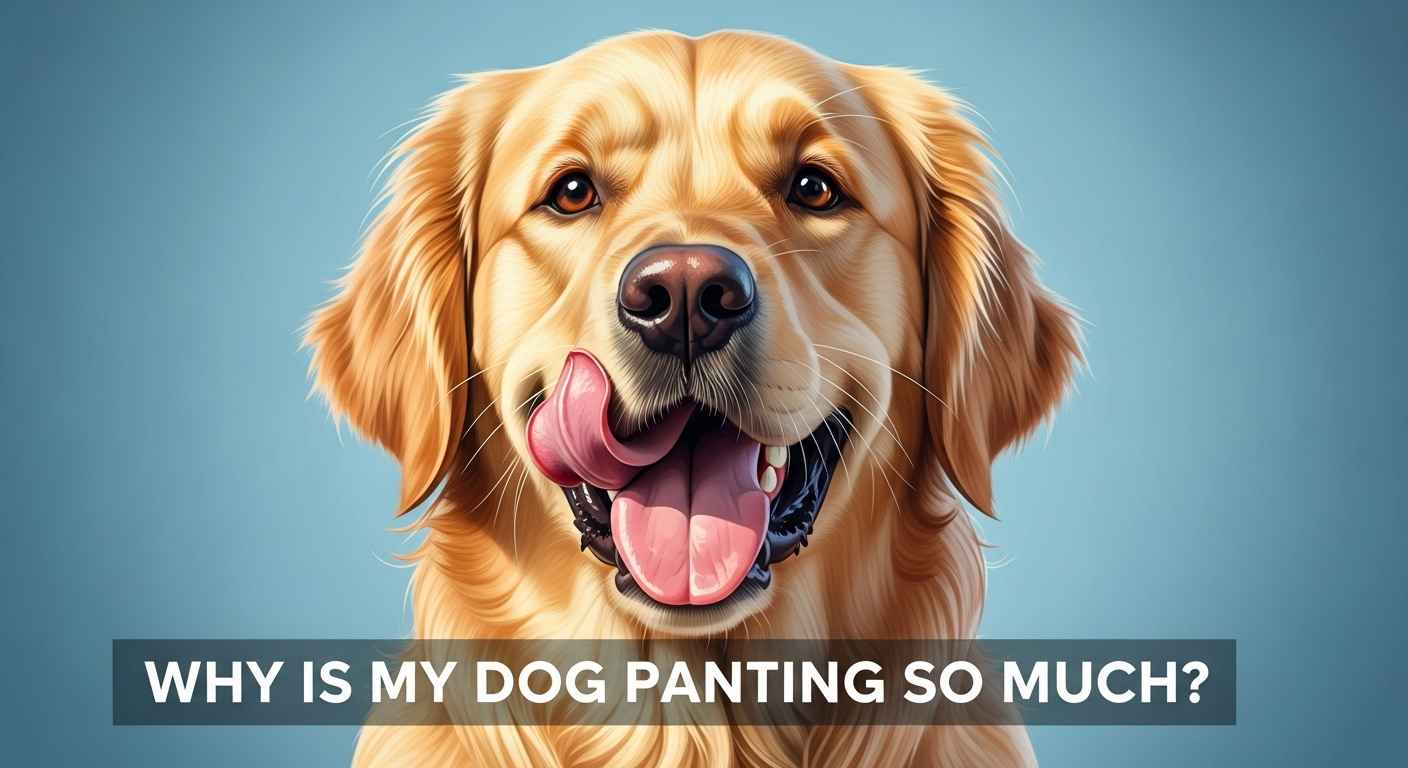Dogs pant to stay cool. They lack sweat glands over most of their body. Air moves over their tongue and lungs. This evaporates moisture. It lowers body heat. Panting also happens with excitement or activity. Yet heavy panting without reason points to issues. This article covers causes, signs, and actions. It helps you spot problems early.

Normal Reasons Dogs Pant
Dogs pant daily. It keeps them comfortable. Here are usual triggers.
- After walks or play. Exercise raises body heat. Panting cools them fast.
- In warm weather. High temperatures make dogs pant more.
- From joy. Meeting people or getting treats can cause quick pants.
Know your dog’s usual pattern. Count breaths at rest. Healthy dogs take 15 to 35 breaths per minute. More than 40 means check closer.
Signs of Too Much Panting
Not all panting is fine. Watch for these red flags.
- Pants in cool rooms or at rest.
- Breathing sounds loud or strained.
- Gums turn pale, blue, or bright red.
- Comes with shaking, pacing, or whining.
- Lasts over 10 minutes after rest.
If panting changes suddenly, note details. Track time and other symptoms. Use our pet symptom checker for quick insights.
Common Causes of Heavy Panting
Many factors lead to extra panting. Some need vet care. Below are key ones.
Heat and Overheating
Dogs overheat easily. Panting helps, but too much heat causes trouble. Short-nosed breeds like pugs face higher risk. Signs include drooling and weakness. Heatstroke can kill if ignored.
Provide shade and water always. Avoid hot walks. Never leave dogs in cars.
Stress or Fear
Anxious dogs pant a lot. Loud noises like storms scare them. Separation from owners adds tension. Look for wide eyes or tucked tails.
Calm your dog with quiet spaces. If stress lasts, talk to a vet about options.
Pain
Pain makes dogs pant. Injuries or sore joints cause it. Older dogs with arthritis pant more at night. They may limp or avoid touch.
Check for wounds. For relief ideas, see what can I give my dog for pain.

Heart Problems
Heart issues limit oxygen. Dogs pant to catch up. Coughing or tiredness joins it. Conditions like heart failure or DCM affect breathing.
Learn more in DCM in dogs. Vets use exams and tests to diagnose.
Lung Issues
Lung problems block air flow. Pneumonia or tumors cause hard pants. Coughs and blue gums appear.
Brachycephalic breeds struggle more. Try our pet breed finder quiz to match breeds to your life.
Cushing’s Disease
This hits older dogs. Too much cortisol builds up. Panting rises with thirst and hunger. Pot belly forms over time.
Vets treat with meds or surgery. Use our pet age calculator for senior care tips.
Other Causes
- Anemia: Low red blood cells cut oxygen. Panting fixes it short-term.
- Meds: Steroids like prednisone boost panting.
- Poison: Toxins from food or plants speed breaths. Check safety with pet food safety checker.
- Breed traits: Thick-coated dogs pant in mild heat.
Why Does My Dog Pant at Night?
Night panting disrupts sleep. Heat in rooms causes it. But pain or anxiety plays a role too. Senior dogs with joint aches pant and pace.
Cool the space. Add fans. If it pairs with shaking, read why is my dog shaking.

When to Take Your Dog to the Vet
Go right away if panting comes with:
- Collapse or seizures.
- Swollen belly.
- Hard breathing over 30 minutes.
- Signs of flu. See can dogs get flu.
Vets check heart, lungs, and blood. Early visits save lives.
How to Help a Panting Dog at Home
Act fast for mild cases.
- Move to cool spots.
- Offer fresh water.
- Fan air over them.
- Rest from activity.
Avoid ice baths. They shock the system.
Ways to Prevent Heavy Panting
Keep dogs safe year-round.
- Walk early or late on hot days.
- Trim coats for thick fur.
- Watch weight to ease breathing.
- Test for heartworms yearly.
- Use calm routines to cut stress.
Pair dogs wisely with pet compatibility checker.
Frequently Asked Questions
Is It Normal for Dogs to Pant a Lot?
Yes, if hot or active. But resting pants signal checks needed.
What Does It Mean When a Dog Pants Heavily?
It means cooling, stress, or health woes like heart trouble.
Why Is My Dog Panting and Restless?
Pain or fear often causes this. Check for injuries or noise. See why does my dog follow me everywhere.
When Should I Worry About Dog Panting?
Worry if it lasts without cause or with odd signs like coughing.
Why Is My Old Dog Panting So Much?
Age brings heart or Cushing’s issues. Track changes in seniors.
For more, visit trusted sites like AKC.
